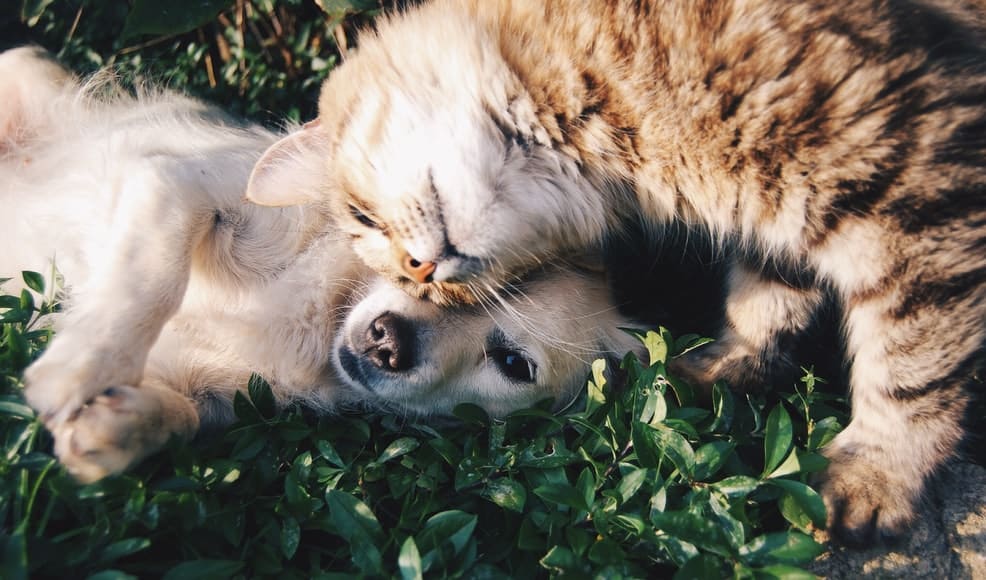If you have a pet, chances are you consider them part of your family. You not only care for their physical health but also their mental health as well. If your four-legged friend has anxiety, keep reading to find out how to help them cope with everyday situations that cause stress.
1. Busy Environments Can Cause Stress
To your dog or cat, everyday occurrences can be just as tense as vacation chaos is for you. If they are not exposed to daily events like thunderstorms, fireworks, concerts, and other loud noises early on, it will create anxiety throughout their life. If your pet is already in a stressful situation, try using helpful tools like pheromone diffusers, calming drops, and water additives to help alleviate their anxiety.
2. Use CBD oils
CBD oils can be a huge help, and they’re also legal for humans to use. If you’re going to try CBD oil for your pet’s anxiety, I’ve learned that it’s usually best to give them the lowest dosage possible. In fact, start with a really low dosage and work your way up from there if necessary. A few drops of this oil will go a long way. Some pets may not need anything more than this to get extremely relaxed, while others might need the full dosage range available. There are different kinds of CBD oils for dogs, cats, horses, and other pets. If you are looking for the best CBD oil for cats, all you need is to do your research. You may just find something to help your anxious pet.
3. Exercise Your Pet
In the same way that exercise is good for you, it’s also great for your pets. Help them sweat out their anxiety by taking them out for a run or playing fetch in the backyard. If your pet is anxious, don’t make the mistake of thinking that more food is the answer. It’s not, and in some cases, feeding them more can cause them to gain weight, which can exacerbate this anxiety. When you exercise your pet, you are helping them to burn off that excess energy that is causing them to be anxious. The more they burn, the less anxious they will become. It’s a simple solution, but one many people fail to implement because it seems too easy or too obvious.
4. Massage
You can also try a little massage to soothe your pet. If you have a larger pet, it’s best to let them lie down or sit – depending on their preference – and then you should gently massage the muscles in their neck, as well as those along their spine.
Be careful not to use too much pressure when massaging your pet, and if they show signs of discomfort or stress, don’t continue. Speak softly to your pet when you are massaging them, so they feel more relaxed. If you have a little time on your hands, spend it with your pet! Play with them for a bit or give them treats – not only will it cheer them up, but it will also help to relieve any anxiety they may be feeling.
5. Place them in an Epsom salt bath for 20 minutes
Epson salt baths can be very helpful for dogs that are suffering from anxiety. If your dog has already been given medication, you can add epsom salt to the bath water and let them soak for up to 20 minutes. Epson salts are known to ease muscle tension and promote overall relaxation in humans, but experts still aren’t sure how it works on pets.
If your dog isn’t already on the medication you can give them a epsom salt bath even if they are. It’s believed that the magnesium sulfates present in epsom salt have a calming effect on pets, much like it does for humans.

6. Play your pet’s favorite game
While you can’t always release stress in this way when your dog is having an episode, playing their favorite game or spending time with them can help to ease some of their tension. If you and your pet enjoy a good game of fetch, try throwing the ball or toy for them in an enclosed area with no distractions, so they can really focus on the task at hand.
Prevention is also key when it comes to anxiety. Keep your dog’s mind engaged with games and training sessions to avoid boredom. Anxiety is often caused by your pet’s environment, so make sure you give them plenty of attention and exercise during the day to keep them happy. It can also be helpful to give them a buddy if they are used to being on their own for long periods of time or are left alone too much. When paired with another pet that is relaxed, they will often mimic these behaviors.
7. Practice relaxation exercises with your pet
Luckily for us, humans can conduct a simple exercise that helps pets to find some peace and relieve their anxiety as well. The basic idea of this technique is called progressive muscle relaxation, and it involves tensing every muscle in the body for about 10 seconds and then releasing for 10 seconds.
You can practice this technique with your pet by having them lie down and then slowly going through each muscle group to help them learn how the process works. It might seem a little odd at first, but it can be a valuable addition to your arsenal of tools when it comes to calming anxiety in pets.
8. Calming music
It’s a scientifically proven fact that relaxing music can lower blood pressure and heart rate in humans, but experts aren’t sure why these soothing sounds have the same effect on pets. It could be a result of the slower beat, or it might just help to relax your pet by creating a more familiar environment. Whatever the cause, many pet owners have had success using calming music or white noise when their pets displayed signs of anxiety.
9. Talk to your vet
If your dog’s anxiety seems particularly acute, talk with your local veterinarian about the problem and see if it could be helped by medication. There are several prescription medications available that can help ease symptoms in pets but keep in mind that many of these drugs come with side effects and might be better reserved for less severe cases.
10. Talk to your vet about supplements
While we’re on the topic, ask your veterinarian if there are any herbal or all-natural supplements you can give to your pet as an extra source of relief from anxiety symptoms. Herbal remedies and their derivatives have been used for centuries to treat a variety of ailments and seem to be just as effective at reducing anxiety in pets, often with fewer side effects than prescription medication.
If your pet is suffering from an intense case of anxiety or experiences attacks frequently, it’s time to talk with your vet about these options and see what could work best for your situation. The above tips will definitely come in handy.





